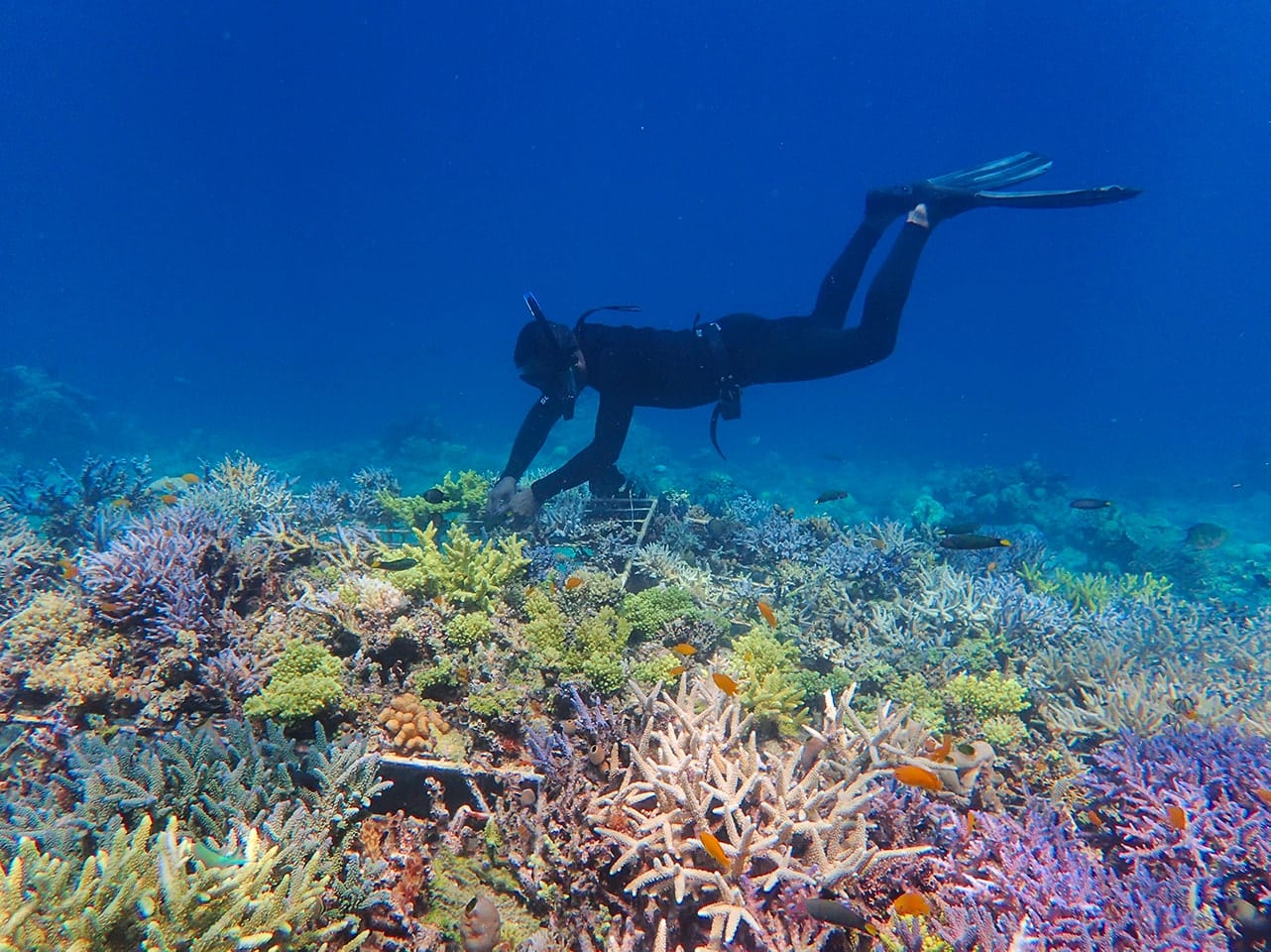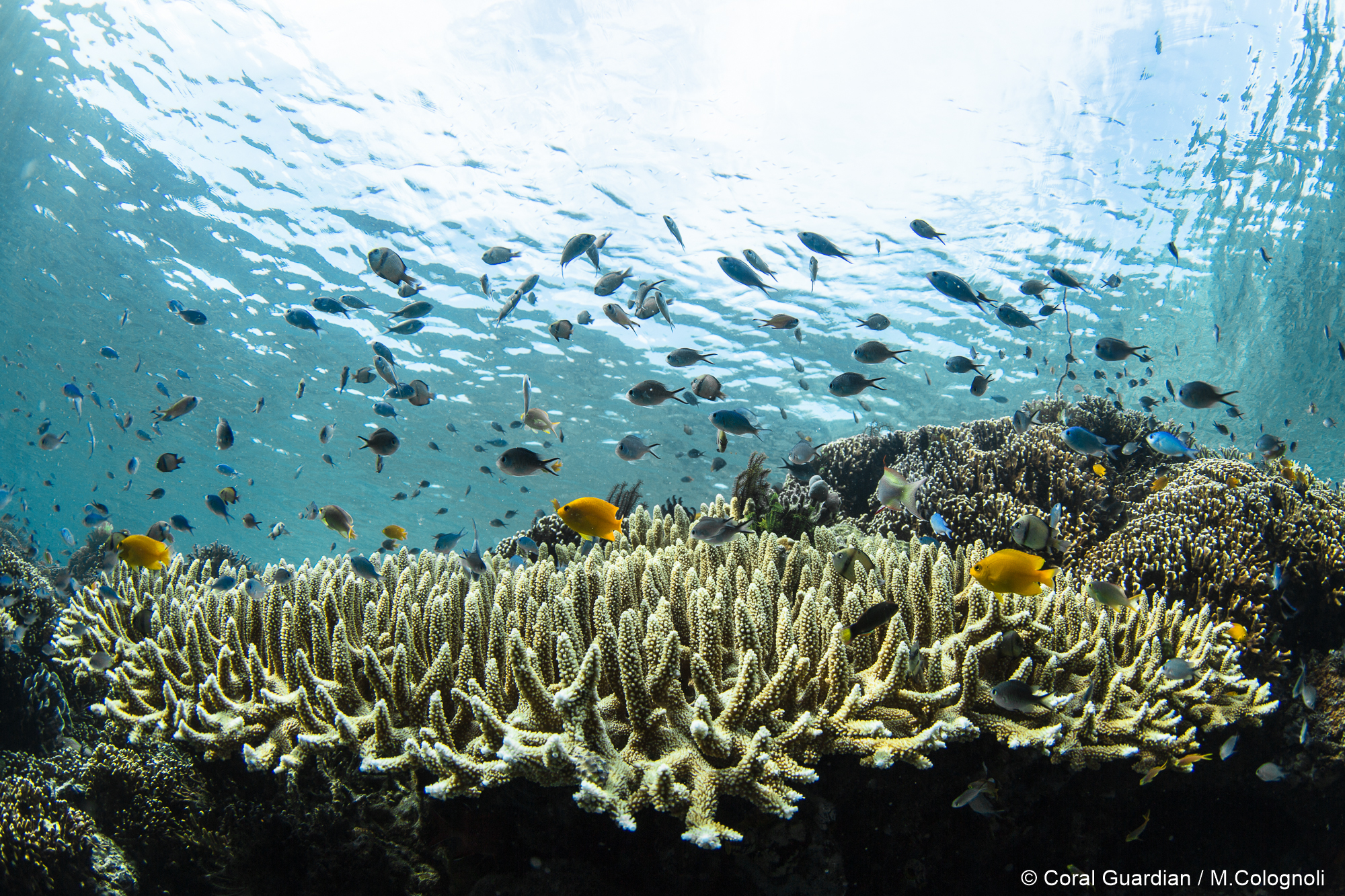Plastic – a novel cause of diseases in coral reefs
Durability is what best defines plastic. Convenient, lightweight, and offering good mechanical properties, plastic polymers have revolutionized our everyday lives since mass production began in the 20th century. Between 1950 and 2015, 9.1 billion tons of plastic was produced worldwide with only 10% of the global production recycled. Most of this remaining plastic debris accumulates in the environment and especially in the oceans, where 5-13 million tons are discharged every year.
Scientists have now identified five large areas of plastic debris floating within the world’s oceans including the Northern Great Pacific garbage patch, which is estimated to cover more than 1.6 million km2, or an area approximately three times the surface area of France. Over time, UV sunlight, salt and water movement break down these pieces of plastic into smaller, insidious fragments, that we call microplastics. Microplastics have rough surface characteristics, which allow toxins and other waterborne chemicals from industry and agriculture to easily adhere to their surface. In a recent study published in Science, an international group of researchers have now found that plastic wastes can also promote colonization by harmful microbes, further increasing the prevalence of coral diseases. The researchers collected 124,000 coral fragments from across 159 reefs in the Asia-Pacific region and found that the likelihood of disease increased up to 89% when corals were in direct contact with plastic debris. In addition, they found that plastic wastes were most likely to affect reef-building corals with greater structural complexity such as tabular and branching versus massive colonies, which contribute the most to reef growth and habitat complexity.
These findings have worrisome implications for corals, which are already expected to experience increased disease outbreaks due to global change and human-associated local disturbances. Ubiquitous plastic within the oceans will likely exacerbate this problem and further imperil coral reefs, which will have ripple effects on coastal populations that depend on these ecosystems for their ecological goods and services.
Moreover, these results add to a growing body of research demonstrating the diverse and complex facets of the plastic pollution problem. A fossil fuel-derived product, plastic accumulation in our environment has become a cross-border environmental and social issue that affects the health of our terrestrial and aquatic ecosystems and threatens species around the world, including our own. Preserving biological diversity and protecting our endangered ecosystems depend on everyone’s actions! Together we can act to reduce our plastic consumption through everyday simple actions : https://www.mnn.com/lifestyle/responsible-living/stories/16-simple-ways-reduce-plastic-waste
Ces articles pourraient vous intéresser

Coral reef restoration: sexual or asexual reproductions of corals
Why restore coral reefs? 25% of marine biodiversity depends on or lives in coral reefs and 275 million people depend on them directly for a…
3 December 2020
Coral adaptation to climate change
The oceanic heat waves are getting closer and closer together. Over the last two decades, we have had four! Unfortunately, 2016 and 2017 were brutal…
28 March 2019Focus on IMPAC4: the International Congress on Marine Protected Areas
IMPAC4 is the international congress on Marine Protected Areas which brings together all the specialists of the marine environment. Coral Guardian was present to share…
12 September 2017
